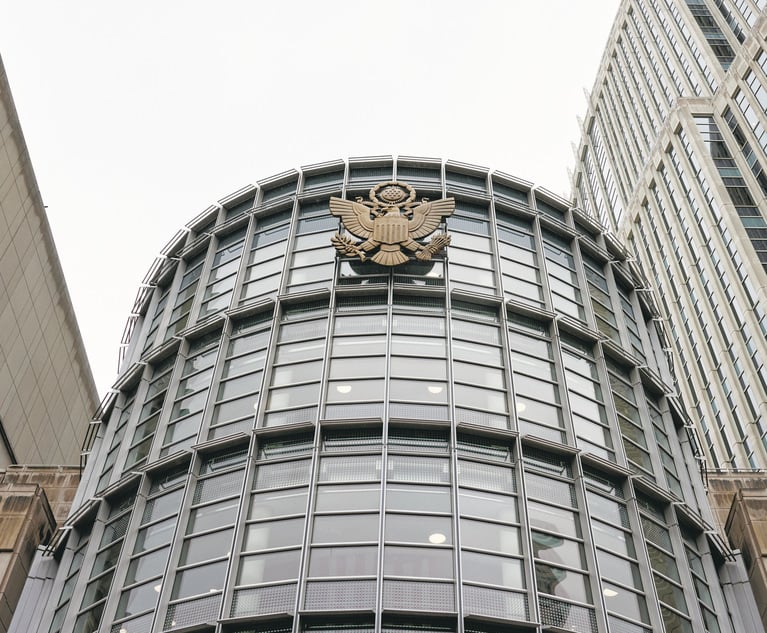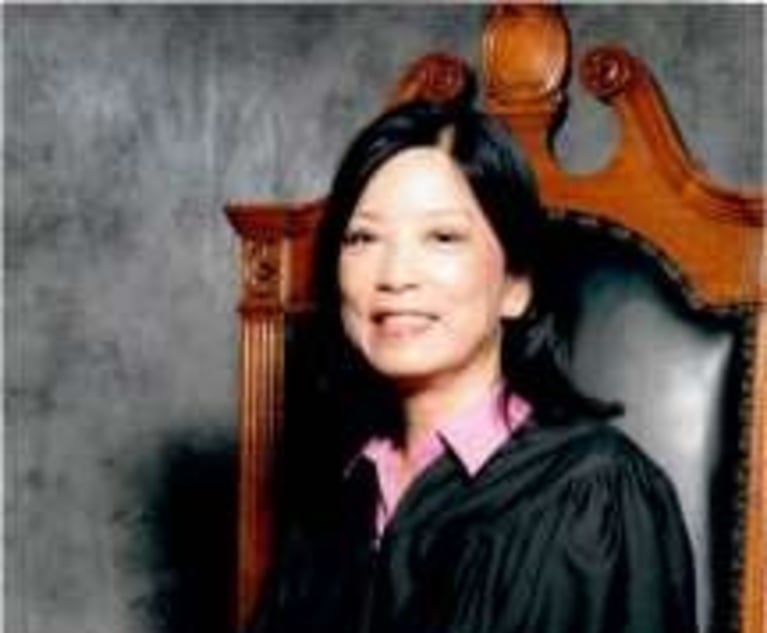District Court Erred in Nixing Advice of Counsel Defense, Second Circuit Finds
The former head of a pharmaceutical distributor should have been allowed to testify to his counsel's advice regarding the drug importation and reselling, the appellate panel found Wednesday.
December 13, 2017 at 04:06 PM
4 minute read

A former pharmaceutical executive convicted of fraudulently selling imported drugs without FDA approval won a reversal and remand for a new trial from the U.S. Court of Appeals for the Second Circuit on Wednesday in United States v. Scully, No. 16-3073-cr.
William Scully was convicted of mail and wire fraud and conspiracy to commit the same in what prosecutors said was the defrauding of doctors and other medical providers who believed they were buying drugs backed by the U.S. Food and Drug Administration. In fact, Scully and his business partner were importing and reselling drugs from Canada, Turkey and elsewhere that had not received the U.S. government's stamp of approval.
During trial, Scully's primary defense was that he relied on the advice of counsel that his actions weren't criminal. Yet an attempt to establish that defense was thwarted by U.S. District Judge Arthur Spatt of the Eastern District of New York, who ruled that an attempt to introduce Scully's testimony about the advice from his counsel, private attorney Peter Tomao, was overly prejudicial to the government.
“This testimony is extremely important to the defense, and as the prosecutor said, totally prejudicial to the government,” Spatt is quoted as saying from transcripts. “Why should I permit this totally prejudicial evidence for a state of mind where it is outweighed by the danger of unfair prejudice?”
The panel of Second Circuit Judges Rosemary Pooler and Gerard Lynch and District Judge Brian Cogan of the Eastern District of New York, sitting by designation, found that the district court's “continued concern with the hearsay character of Scully's secondhand relaying of Tomao's words was misplaced.”
“It is difficult to identify what unfair prejudice that testimony would have imposed on the government,” the panel found.
At trial, Spatt questioned why Tomao himself wasn't being called as a witness, but the panel found it wasn't an appropriate requirement to ensure the reliability of the defendant's testimony. The district court erred in considering “as an element of prejudice to the government the increased possibility that Scully's testimony about Tomao's oral advice would be false if uncorroborated by testimony from Tomao himself,” the panel said.
This error was not harmless, according to the panel. Since Scully's sole defense was that he relied on advice of counsel in how he operated his business, articulating his version of the advice Tomao gave him was necessary to that defense. Being denied that opportunity for the jury to hear what his state of mind was—and to have the government rebut that position—meant a new trial had to be ordered.
The panel went on to provide parameters for how to instruct the jury regarding advice of counsel strategy, something Scully argued the district court had erred in doing at trial. In particular, the panel took issue with Spatt's “potentially confusing” instructions at trial that the defendant had a burden of proof, or was required to show evidence, to support an advice of counsel defense. Better, the panel said, that the district court use language from the Seventh Circuit and others that laid out the threshold test for the defense strategy without the potentially misleading language.
Scully's counsel, Katten Muchin Rosenman partner Scott Resnik, handled both the trial and the appeal. He told the New York Law Journal that the result was a vindication for his client's right to bring an advice of counsel defense.
“This is correcting an important evidentiary ruling that happened at the trial court, that really impaired our ability to put our whole defense up,” Resnick said. “My client truly believes he will be able to succeed at the retrial, now that he'll be able to present his whole defense and all the evidence that support the decisions he made on how to handle his business.”
The U.S. Attorney's Office for the Eastern District of New York represented the government, with Assistant U.S. Attorney Kenneth Abell arguing on appeal. A spokesman for the office declined to comment.
This content has been archived. It is available through our partners, LexisNexis® and Bloomberg Law.
To view this content, please continue to their sites.
Not a Lexis Subscriber?
Subscribe Now
Not a Bloomberg Law Subscriber?
Subscribe Now
NOT FOR REPRINT
© 2025 ALM Global, LLC, All Rights Reserved. Request academic re-use from www.copyright.com. All other uses, submit a request to [email protected]. For more information visit Asset & Logo Licensing.
You Might Like
View All
Haynes and Boone Expands in New York With 7-Lawyer Seward & Kissel Fund Finance, Securitization Team
3 minute read
Ticket-Fixing Scheme Results in Western NY Judge's Resignation—for a Second Time

Disbarred NY Atty Receives 54-Month Prison Sentence After $3M Embezzlement
3 minute read
Legal Community Mourns the Loss of Trailblazing Judge Dorothy Chin Brandt
Trending Stories
Who Got The Work
J. Brugh Lower of Gibbons has entered an appearance for industrial equipment supplier Devco Corporation in a pending trademark infringement lawsuit. The suit, accusing the defendant of selling knock-off Graco products, was filed Dec. 18 in New Jersey District Court by Rivkin Radler on behalf of Graco Inc. and Graco Minnesota. The case, assigned to U.S. District Judge Zahid N. Quraishi, is 3:24-cv-11294, Graco Inc. et al v. Devco Corporation.
Who Got The Work
Rebecca Maller-Stein and Kent A. Yalowitz of Arnold & Porter Kaye Scholer have entered their appearances for Hanaco Venture Capital and its executives, Lior Prosor and David Frankel, in a pending securities lawsuit. The action, filed on Dec. 24 in New York Southern District Court by Zell, Aron & Co. on behalf of Goldeneye Advisors, accuses the defendants of negligently and fraudulently managing the plaintiff's $1 million investment. The case, assigned to U.S. District Judge Vernon S. Broderick, is 1:24-cv-09918, Goldeneye Advisors, LLC v. Hanaco Venture Capital, Ltd. et al.
Who Got The Work
Attorneys from A&O Shearman has stepped in as defense counsel for Toronto-Dominion Bank and other defendants in a pending securities class action. The suit, filed Dec. 11 in New York Southern District Court by Bleichmar Fonti & Auld, accuses the defendants of concealing the bank's 'pervasive' deficiencies in regards to its compliance with the Bank Secrecy Act and the quality of its anti-money laundering controls. The case, assigned to U.S. District Judge Arun Subramanian, is 1:24-cv-09445, Gonzalez v. The Toronto-Dominion Bank et al.
Who Got The Work
Crown Castle International, a Pennsylvania company providing shared communications infrastructure, has turned to Luke D. Wolf of Gordon Rees Scully Mansukhani to fend off a pending breach-of-contract lawsuit. The court action, filed Nov. 25 in Michigan Eastern District Court by Hooper Hathaway PC on behalf of The Town Residences LLC, accuses Crown Castle of failing to transfer approximately $30,000 in utility payments from T-Mobile in breach of a roof-top lease and assignment agreement. The case, assigned to U.S. District Judge Susan K. Declercq, is 2:24-cv-13131, The Town Residences LLC v. T-Mobile US, Inc. et al.
Who Got The Work
Wilfred P. Coronato and Daniel M. Schwartz of McCarter & English have stepped in as defense counsel to Electrolux Home Products Inc. in a pending product liability lawsuit. The court action, filed Nov. 26 in New York Eastern District Court by Poulos Lopiccolo PC and Nagel Rice LLP on behalf of David Stern, alleges that the defendant's refrigerators’ drawers and shelving repeatedly break and fall apart within months after purchase. The case, assigned to U.S. District Judge Joan M. Azrack, is 2:24-cv-08204, Stern v. Electrolux Home Products, Inc.
Featured Firms
Law Offices of Gary Martin Hays & Associates, P.C.
(470) 294-1674
Law Offices of Mark E. Salomone
(857) 444-6468
Smith & Hassler
(713) 739-1250






